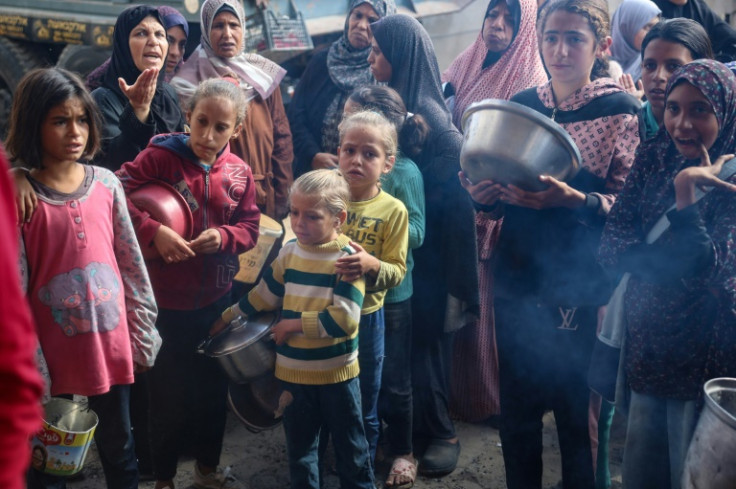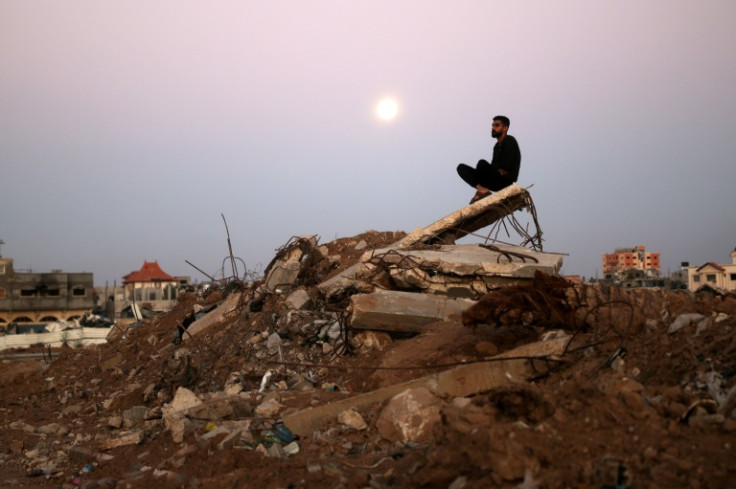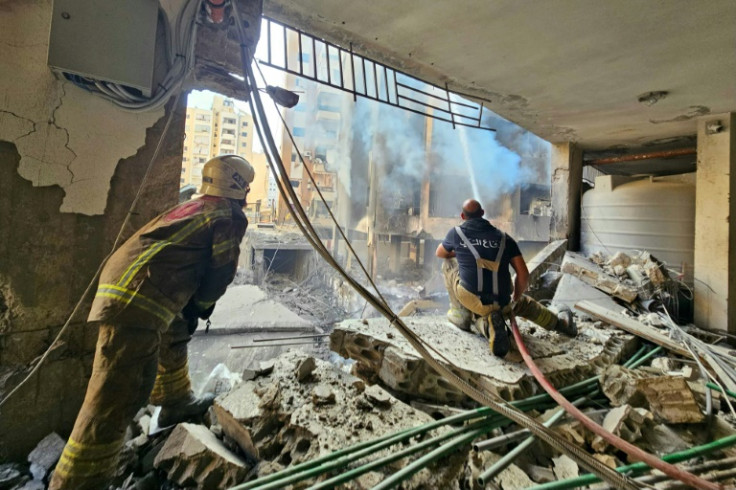
Israel launched a wave of air strikes on Hezbollah bastions in Beirut and south Lebanon on Saturday, a day after Lebanese government officials said they were studying a US truce proposal.
An Israeli strike on neighbouring Syria earlier this week killed two leaders from Islamic Jihad, a Palestinian group which has fought alongside Hamas militants in Gaza, a source told AFP.
Hamas, Hezbollah and Islamic Jihad are all backed by Israel's arch-enemy Iran, which on Friday said it backed a swift end to the nearly two-month war in Lebanon.
Since September 23, Israel has escalated its bombing of targets in Lebanon, later sending in ground troops after almost a year of limited, cross-border exchanges of fire begun by Hezbollah militants over the Gaza war.
AFPTV footage showed fresh strikes on the southern suburbs of Beirut on Saturday, following calls from the Israeli army for residents to evacuate.
Lebanon's state-run National News Agency said "the enemy" carried out three air raids in the morning, later reporting another attack in the neighbourhood of Chiyah.
The Israeli military said its aircraft had targeted "a weapons storage facility" and a Hezbollah "command centre" in south Beirut.
NNA also reported a strike on the southern city of Tyre, in a neighbourhood near UNESCO-listed ancient ruins.
Hezbollah claimed several rocket attacks on northern Israel, targeting military sites including a naval base in the Haifa area.
Lebanese authorities say that more than 3,440 people have been killed since October last year, when Hezbollah and Israel began trading fire.
In Hamas-run Gaza, the Israeli military said its forces continued "operational activity" in the northern areas of Jabalia and Beit Lahia, the targets of an intense offensive since early October.
Troops also operated in the southern district of Rafah, the army said.
Israel says its renewed operations in the ravaged north were meant to stop Hamas militants from regrouping.
A UN-backed assessment at the weekend warned famine was imminent in northern Gaza, and UN figures showed the Israeli operation had forced at least 100,000 people to flee.
Israel has pushed back against a Human Rights Watch report this week that said its displacement of Gazans amounts to a "crime against humanity", as well as findings from a UN Special Committee that pointed to warfare practices that "are consistent with the characteristics of genocide".
A foreign ministry spokesman dismissed the HRW report as "completely false", while the United States -- Israel's main military backer -- said accusations of genocide "are certainly unfounded".
The Gaza health ministry said at least 35 people were killed in the territory in the previous 24 hours, taking the overall death toll in more than 13 months of war to 43,799.
The majority of the dead were civilians, according to ministry figures which the United Nations considers reliable.
Hamas's October 7, 2023 attack on Israel that sparked the war resulted in the deaths of 1,206 people, mostly civilians, according to an AFP tally of Israeli official figures.
The civil defence agency reported 11 people killed in strikes across Gaza early on Saturday.
In Rafah, Jamil al-Masry said a house was hit, causing "a massive explosion".
"We went to the house, only to find it in ruins, with fire raging and smoke and dust everywhere," he told AFP.
People "started searching for martyrs and survivors" with their bare hands, he said, with some "still under the rubble".
In a rare claim of responsibility for a strike on Syria, Israel said it targeted the Islamic Jihad group on Thursday.
A source from the group told AFP on Saturday that Abdel Aziz Minawi, a member of Islamic Jihad's political bureau, and the group's foreign relations chief Rasmi Abu Issa were killed in the strike on Qudsaya, in the Damascus area.
Islamic Jihad still holds several Israeli hostages taken during the October 7 attack on southern Israel. Earlier this week, the group released two video clips of Sasha Trupanov, a 29-year-old Russian-Israeli hostage.
As diplomacy aimed at ending the Gaza war has stalled, a top government official in Beirut said on Friday that US ambassador Lisa Johnson had presented a 13-point proposal to halt the Israel-Hezbollah conflict.
A second Lebanese official, similarly requesting anonymity to discuss sensitive matters, said he was "optimistic" about the talks.
A senior adviser to Iran's supreme leader Ayatollah Ali Khamenei met Lebanese officials in Beirut on Friday, saying Tehran was "looking for solutions".
Ali Larijani said Iran supported the Lebanese government and "the resistance" -- Hezbollah -- "under any circumstances".











